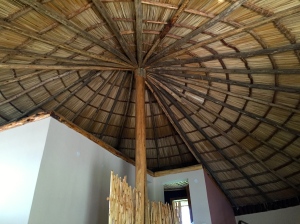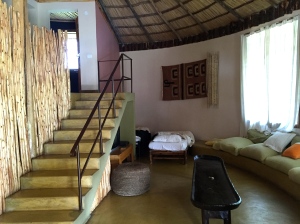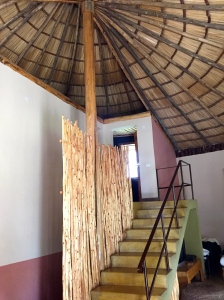Duckweed hunting in Hawassa
Last weekend (weekend of July 24th) most of the Emory students [...] and I took a weekend trip to Hawassa, ....On Sunday we drove 45 minutes to Hawassa with one goal in mind: find duckweed. While there are many aspects to the research project we are working on, the entire project hinges on successfully cultivating duckweed, a tiny aquatic plant, and it is my job to ensure that we succeed. Despite being native to Ethiopia and a fast growing invasive ‘weed’, duckweed has remained elusive thus far. Ani identified duckweed growing in the baptismal ponds of Lalibela, the famous rock-hewn churches in northern Ethiopia, but being a holy site, he wasn’t able to collect any. We had a tip that duckweed is present in Hawassa – the authors of a research paper I read collected duckweed in marshes around Lake Hawassa – so we couldn’t return to Addis empty handed.



We started our hunt at a resort on Lake Hawassa, mainly so we could check out the lakefront and get internet access to do a little bit of work. Biruh, our fearless leader (and only Amharic speaker), presented a waiter at the lakefront bar with a picture of the duckweed Ani found in Lalibela and asked if he knew where we could find it in Hawassa. The waiter did not know, but he introduced Biruh to a tour boat operator whom might know. The operator said yes, he knew where we could find duckweed, and he could take us there for 350 ETB (17.5 USD) plus 150 ETB (7.50 USD) if he jumped in the water to collect it for us. We passed on the offer figuring we could find someone else who would tell us where to go without paying. Biruh asked the concierge, who asked a few other resort employees, until one said that not only did he know where we could find duckweed, he would also gladly take us there himself for free.
30 minutes later we found ourselves in the car with the hospitality manager of the resort (hospitality, indeed!) driving to a popular restaurant and boardwalk area along Lake Hawassa. Traffic was a mess, the area was packed, and we couldn’t have looked more out of place: a resort manager in a suit, an Ethiopian student, and 3 foreigners with backpacks and empty water bottles to collect what is widely regarded as an invasive weed. In Ethiopia, if you have a task you are trying to accomplish it’s extremely common that people walking by will stop and try to help you accomplish it, regardless of your opinion on the situation. Although nobody offered to help the strange man in a suit climb down a hill to check out a patch of green algae on the edge of the lake (it wasn’t duckweed), plenty of people stopped to watch us. We weren’t having much luck along the edge of the lake, likely because duckweed prefers still waters, but we only had to walk a few more minutes before we struck gold – to the right of the boardwalk on the other side of a wall we spotted a large wastewater pond, the surface entirely obscured by a thick layer of duckweed.



Comments
Post a Comment